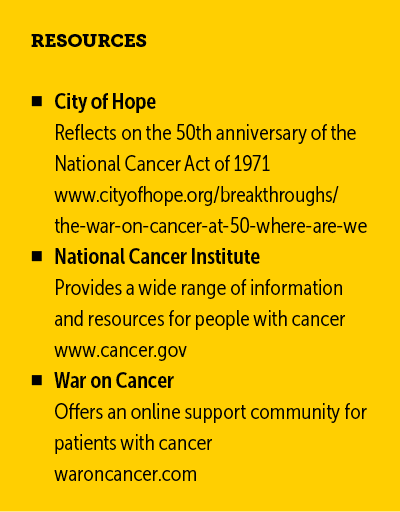As an Oncology Nurse, What Does It Look Like to Be a Well-Being Clinician?
For me, becoming a well-being clinician required a journey that does not end. I discovered four relationships to pay attention to as an oncology nurse, and each requires care. They are self, colleagues, community, and patients and families. My journey to becoming a well-being clinician meandered through a variety of clinical practice, educational, and leadership opportunities. At each stopover, I developed knowledge, skills, and abilities in caring relationships. Three in particular were pivotal in my well-being practice development: my first nursing job as a float nurse in a small community hospital, a therapeutic communication class in my BSN completion program, and my Master of Arts in Lay Ministry (MALM) degree.
Jump to a section
For me, becoming a well-being clinician required a journey that does not end. I discovered four relationships to pay attention to as an oncology nurse, and each requires care. They are self, colleagues, community, and patients and families. My journey to becoming a well-being clinician meandered through a variety of clinical practice, educational, and leadership opportunities. At each stopover, I developed knowledge, skills, and abilities in caring relationships. Three in particular were pivotal in my well-being practice development: my first nursing job as a float nurse in a small community hospital, a therapeutic communication class in my BSN completion program, and my Master of Arts in Lay Ministry (MALM) degree.
When I graduated from my nursing program, I wanted to work in oncology because an RN I admired provided holistic care to patients with cancer. There were no positions in my hometown hospital, so I took a float nurse position in which I would get to work on the oncology unit from time to time. This was my first adult job, and I was not prepared. I struggled going to work every day and called out sick a lot. My chief nursing officer (CNO) saw my struggle and suggested I take some time off to reflect on being a nurse. I had no idea about a caring relationship with colleagues until she role modeled that to me. That CNO gave me awareness of my caring relationship with myself. What a gift.
The next pivotal moment happened in my BSN completion program, specifically the therapeutic communication class, which helped me to further define my passion for a caring relationship with patients and families. Discovering that I can help someone more holistically by listening to their story was a revelation. My caring relationship with self continued to develop by incorporating this teaching into practice. By this time I was a charge nurse. Withholding judgment when someone called in sick or bringing the group together to discuss traumatic deaths opened my eyes to the power of caring in relationships with colleagues. My skills in this area were sought out by my colleagues, and I was asked to present locally, regionally, and nationally. Suddenly, I was adding a new caring relationship with the community.
My journey took a turn during graduate school, where I earned an MALM degree along with my MSN. The nursing graduate program and seminary were grounded in family systems theory. My career had brought me to be the breast health nurse at my hospital. I was working in oncology and attending classes at a seminary when everything I had learned about caring relationships came full circle. I met with women after a diagnostic mammogram, talked with them about their results, listened to their stories, and supported them through further diagnostic workups. Caring relationships, a family systems theory perspective, became the pavement of the road I traveled.
Since 2016, I have been working with the oncology ambulatory and oncology emergency staff promoting caring relationships to create a healing environment. My work now is encouraging and guiding clinicians in relationship-building efforts. The result has been multiple well-being events, projects, and programs supporting a caring environment for patients and staff. I have walked the road of discovering self and how to care for self. My ability to be a better colleague has developed as I focus on that caring relationship. Although the community I serve is now healthcare providers, the focus is still individuals with cancer and their families.
We all have faced struggles recently—the COVID-19 pandemic and societal unrest to name a couple. If your institution does not provide well-being clinicians, then you must be your own nurse and put energy into your own caring relationship with self. Consistent action makes resilience possible. Movement, awareness, and caring for self matters. When we care, we create a community where caring and healing can happen. 
About the Author(s)
Amy E. Rettig, DNP, MALM, APRN-BC, CBCN®, is a mental health advanced practice RN at the Ohio State University Wexner Medical Center in the Arthur G. James Cancer Hospital and Richard J. Solove Research Institute in Columbus, OH. The author takes full responsibility for this content and did not receive honoraria or disclose any relevant financial relationships. Rettig can be reached at amy.rettig@osumc.edu, with copy to CJONEditor@ons.org.




